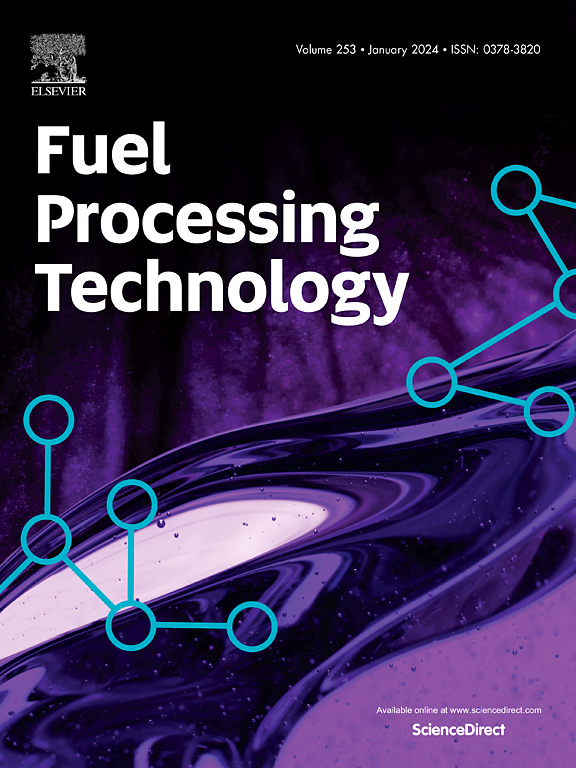Performance improvement and emissions reduction of methanol fuelled marine dual-fuel engine with variable compression ratio
IF 7.2
2区 工程技术
Q1 CHEMISTRY, APPLIED
引用次数: 0
Abstract
Methanol use in marine engines is associated with challenges pertaining to misfiring and knocking. This study aims at parametrically optimising a marine dual-fuel four stroke engine considering variable compression ratio (VCR) settings and methanol direct injection with 90 % energy fraction. CFD models are developed and validated against experimental data. Parametric runs are employed in 20, 55 and 90 % load, with compression ratio ranging 11–19, to reveal the optimal CR values for each load considering the engine performance and emissions parameters along with constraints on combustion efficiency and stability. The sustainability index is employed to assess the environmental sustainability of the engine under optimal VCR settings compared to FCR. The results reveal that the engine thermal efficiency for CR 19, 16 and 12 at low, medium and high loads respectively increases by 7 %, 2 % at low and medium loads, whereas, decreases by 4 % at the high load. The engine with the proposed VCR settings achieves the compliance with the IMO Tier III limits and increases its sustainability index by 21 % compared to the fixed compression ratio. This study provides insights for the effective use of high methanol energy fractions in marine dual engines, thus contributing to the shipping sector sustainability.

变压缩比船用甲醇双燃料发动机的性能改进与减排
在船用发动机中使用甲醇与失火和爆震相关的挑战有关。本研究旨在参数化优化船用双燃料四冲程发动机,考虑可变压缩比(VCR)设置和甲醇直喷,能量分数为90%。建立了CFD模型,并根据实验数据进行了验证。在20%、55%和90%的负荷下,压缩比范围为11-19,采用参数化运行,在考虑发动机性能和排放参数以及燃烧效率和稳定性约束的情况下,揭示每种负荷下的最佳CR值。采用可持续性指数来评估发动机在最佳VCR设置下与FCR相比的环境可持续性。结果表明,cr19、cr16和cr12在低、中、高负荷下的发动机热效率分别提高了7%、2%,而在高负荷下则降低了4%。与固定压缩比相比,采用VCR设置的发动机符合IMO Tier III限制,可持续性指数提高21%。本研究为在船用双引擎中有效利用高甲醇能量馏分提供了见解,从而促进了航运业的可持续性。
本文章由计算机程序翻译,如有差异,请以英文原文为准。
求助全文
约1分钟内获得全文
求助全文
来源期刊

Fuel Processing Technology
工程技术-工程:化工
CiteScore
13.20
自引率
9.30%
发文量
398
审稿时长
26 days
期刊介绍:
Fuel Processing Technology (FPT) deals with the scientific and technological aspects of converting fossil and renewable resources to clean fuels, value-added chemicals, fuel-related advanced carbon materials and by-products. In addition to the traditional non-nuclear fossil fuels, biomass and wastes, papers on the integration of renewables such as solar and wind energy and energy storage into the fuel processing processes, as well as papers on the production and conversion of non-carbon-containing fuels such as hydrogen and ammonia, are also welcome. While chemical conversion is emphasized, papers on advanced physical conversion processes are also considered for publication in FPT. Papers on the fundamental aspects of fuel structure and properties will also be considered.
 求助内容:
求助内容: 应助结果提醒方式:
应助结果提醒方式:


